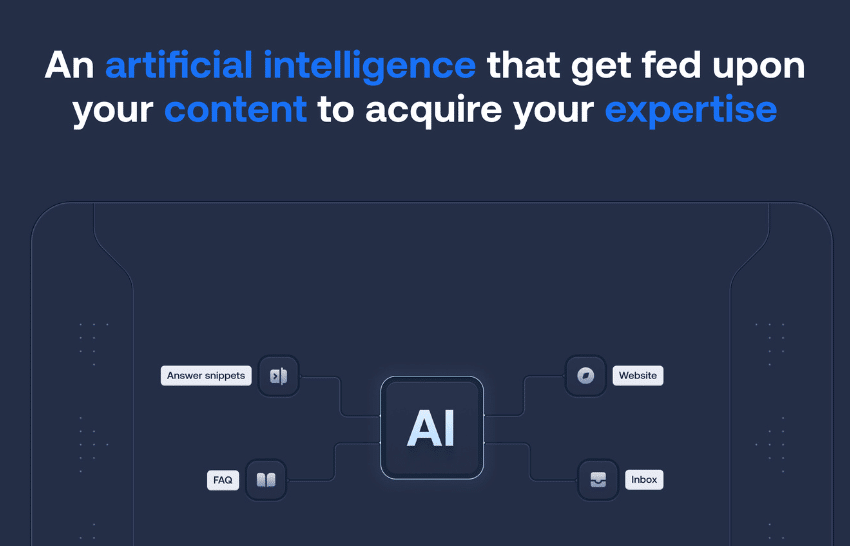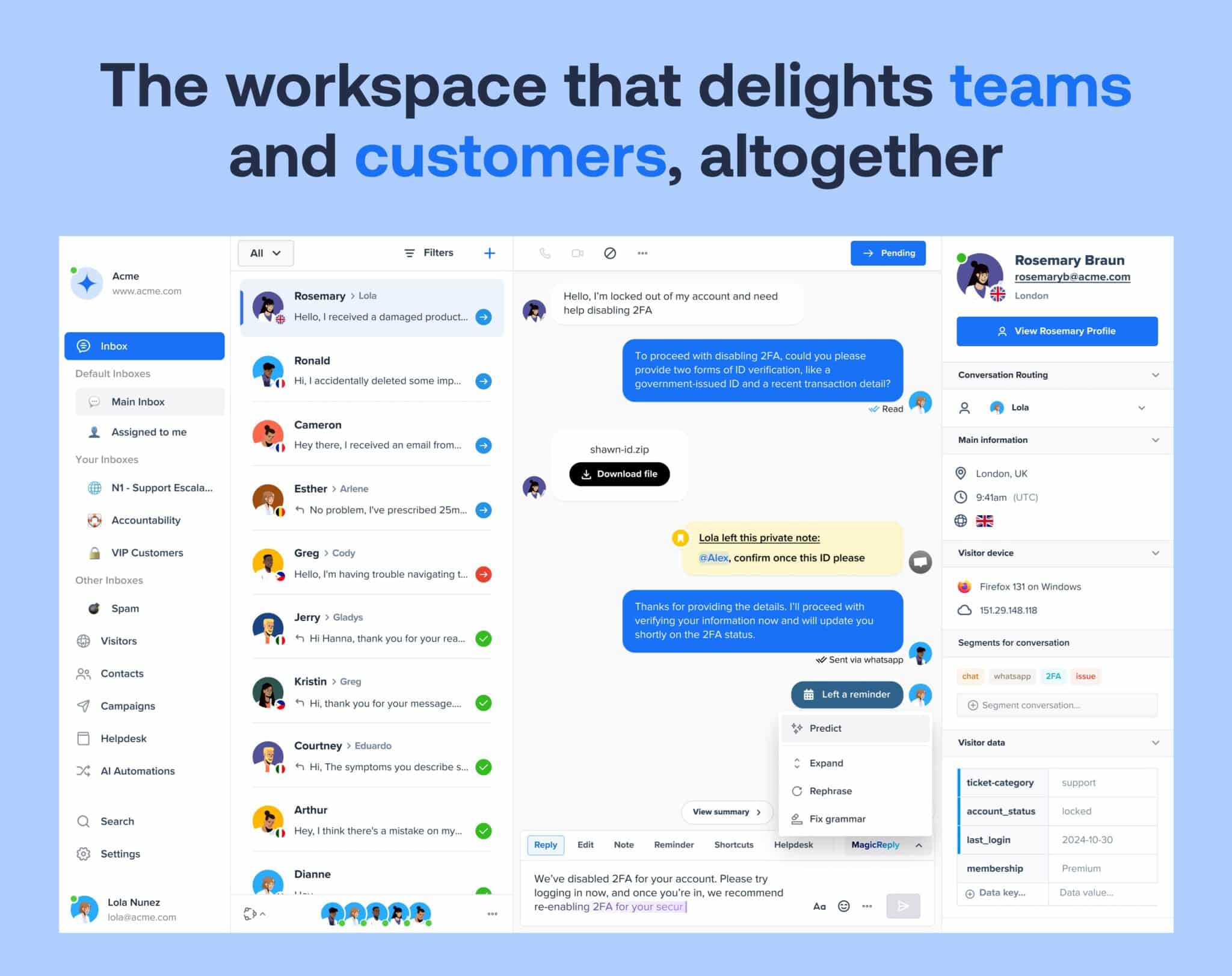From 10 years of bootstrapping to 250 million monthly users: Crisp sets for a fresh new start

Editor’s Note: This post has been created in collaboration and with financial support from Crisp IM. If you’re also interested in partnering with us, just reach out.
Crisp, a contender in the customer service industry, has announced a 100% revamped platform. Known for empowering small and medium-sized businesses (SMBs) with innovative customer service solutions, Crisp continues its journey of bootstrapped success, now determined to move upmarket while remaining steadfast to its core values.
Founded in 2015 by Valerian Saliou and Baptiste Jamin in Nantes, France, Crisp is on a mission to redefine customer relationships. Every month, 250 million people engage with companies using Crisp, and 600,000 companies worldwide leverage its tools. Fully bootstrapped, Crisp operates with a 20-person team spread across the globe. The platform provides omnichannel inbox capabilities, AI-powered features, contact management solutions, knowledge management, and a marketplace for integration with leading tools.
Baptiste Jamin, CEO of Crisp, said: “A year and a half ago, we decided to start from scratch because the market is changing, our customers are growing, and we, as both individuals and a company, are maturing in our vision of the ideal customer service platform.”
Past, present and future of customer service
As the customer service landscape evolves, artificial intelligence is reshaping how businesses engage with customers. Crisp’s new platform embraces the era of Augmented Customer Service (ACS), merging human expertise with AI-driven technology to create seamless interactions for both agents and customers.
CEO and co-founder Baptiste Jamin explained: “We don’t foresee a world where AI handles 100% of customer support inquiries. At some point, people want to talk to people. However, there’s a wide range of queries that can be automated. Ten years ago, when we started Crisp with Valerian, we never thought artificial intelligence would be such a game-changer. Not so soon.”
Through enhanced first-response automation and quicker query resolution, companies can now leverage AI to relieve teams of repetitive tasks. As a result, they can focus on what matters most – delivering exceptional customer experiences.
A counter-intuitive and innovative feature, part of the new Crisp v4, caught our attention: the platform leverages the company’s internal data to offer a website search engine that provides answers to customers and leads, powered by AI, and goes against the chatbot trend.

AI-powered site search: A game changer for self-service
“Five years ago, I created Sonic, a super lightweight internal search engine that is 100% open-source. I did it because there was no affordable solution that could fit with our fixed cost structure and volume of usage. It’s the reality of a bootstrapped company; you have to count every penny,” said Valerian Saliou, CTO and Crisp co-founder.
Crisp’s new AI-powered site search widget takes self-service to the next level, blending AI efficiency with a human touch. Saliou explains how this feature addresses customer reluctance toward automated interactions: “Many users avoid AI agents and don’t search websites for answers. With our widget, we offer the best of both worlds. Customers are encouraged to search within company data to receive high-quality responses, preventing support teams from dealing with low-value queries while ensuring the customer finds answers.”
Following a successful beta phase, thousands of companies have already implemented the widget, with a robust roadmap for continued improvements.
Human at the core, with a simple and calm interface
Customer service roles are often stressful, especially in today’s economic climate where retention and repeat business are key. To ease the workload, Crisp’s latest update features a refreshed user interface (UI) with lighter colours and streamlined elements that provide a calm and efficient workspace.
Jamin highlights the importance of this update: “We focused heavily on improving the UI to reduce anxiety and create more headspace for users.”
This sentiment is echoed by Franck Caudrelier, CEO of Gybus-Cycle, a leading children’s bicycle manufacturer: “More headspace and tranquillity – that’s what I feel when I open the new Crisp every morning.”

Bringing order to chaos
High-volume support inquiries present challenges in ownership and privacy. Over the 10 years of operating a help desk platform, the young company has witnessed major evolutions.
“We’ve seen a lot of companies struggling with conversation segmentation, even more so since omnicanality is no longer just a buzzword. Say you have a VIP customer that requires assistance on WhatsApp; the conversation lands straight into the right folder and is then handled by a customer care specialist to be cherished and guided,” stated Jamin.
Crisp’s newly introduced sub-inbox feature addresses these pain points. Inspired by traditional email folders, this innovative tool allows companies to classify support conversations from any text-based channel. With automated assignment rules and enhanced privacy measures, teams can manage inquiries more efficiently across all channels.
“This feature has been a dream of mine for years,” Jamin added. “Now, companies can improve inquiry ownership and enhance operational efficiency while maintaining the highest level of privacy.”
Scaling customer service with data-driven decisions
As a fully bootstrapped company, Crisp maintains competitive pricing while delivering powerful enterprise-level features.
“Ten years ago, we didn’t even have an analytic dashboard when we released Crisp v1 because our customers didn’t need it. As we’re going upmarket, more and more customers are looking for a better way to measure customer service effectiveness. Our customers have simple questions: Who am I speaking with? How many conversations did I have? When are they speaking with me? How happy are customers with my support team?” explained Baptiste.
The latest update introduces custom dashboards, giving companies the ability to make data-driven decisions and measure their customer service return on investment (ROI). “We’re now enabling companies to better track performance, which is key to making informed decisions and improving service,” Jamin explained.
